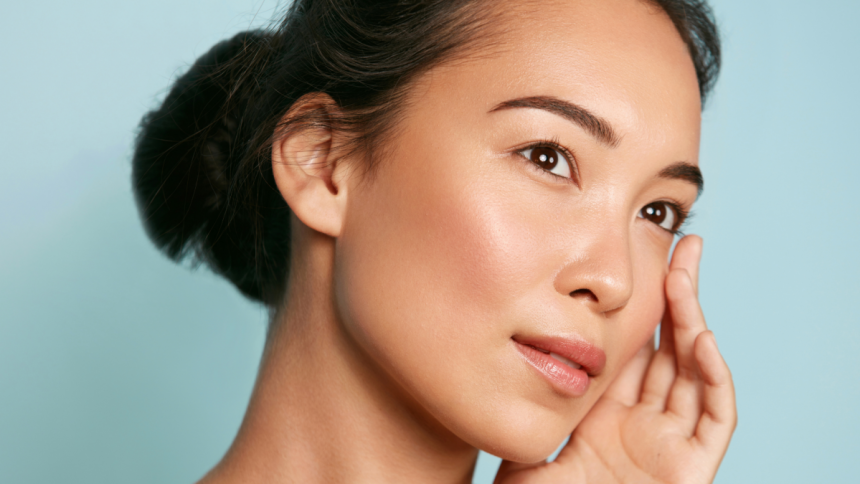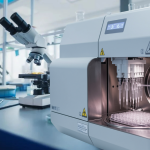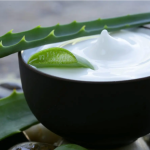Having glowing skin is a blessing, but due to factors like genetics, it is also beyond people’s control. A lot of science is involved in getting that perfect skin most people desire.
Understanding the skin’s basic functions and what it requires to be glowing is essential. Many factors contribute to this, including water consumption, the type of food you eat, and regular application of skin care products. Moreover, the skin’s natural radiance depends on how much you take care of it by shielding it from UV radiation and the food you eat.
Read this article to fully understand the science behind achieving glowing skin and the key to long-lasting radiance beyond surface-level treatments.
Understanding the Skin’s Natural Glow
Your skin is the largest organ in your body, and it does more than just protect you from the environment. It reflects your inner health. Skin glows often due to proper hydration, efficient blood circulation, and a balanced skin barrier. A healthy skin barrier locks in moisture and removes irritants, creating a desirable look.
Many people struggle to maintain a natural glow. This often results from damage caused by environmental factors, aging, and poor skincare habits. Understanding how your skin functions and what it needs can make a big difference in bringing out that radiance.
Hydration: The Foundation of Glowing Skin
One key component of glowing skin is proper hydration. When your skin is well-hydrated, it appears plump and smooth, reflecting light more evenly, which creates that glowing effect. The top layer of your skin, known as the stratum corneum, holds moisture and functions optimally when well hydrated.
Drinking enough water is essential, but so is maintaining external hydration. Moisturizers with humectants like hyaluronic acid can lock in moisture. The result? Skin that not only looks radiant but feels soft and smooth to the touch.
The Role of Diet in Skin Health
It is no secret that what you eat affects your skin’s appearance. Antioxidants, vitamins, and minerals help protect your skin from damage and boost its natural glow. Vitamin C, for instance, is a powerful antioxidant that fights free radicals and stimulates collagen production, leading to firmer, more radiant skin.
Foods rich in omega-3 fatty acids, like salmon and walnuts, help strengthen your skin barrier, locking in moisture and protecting it from irritants. A balanced diet filled with fruits, vegetables, and healthy fats supports overall skin health and radiance from within.
The Supplement Powerhouse
One of the most exciting advancements in skin health is the growing use of supplements that promote glowing, youthful skin. The NMN supplement from MASI.eu having anti-aging properties stands out for its ability to support cellular health by replenishing NAD+ levels. This is essential for cellular energy and repair because its production declines with age.
Restoring your body’s NAD+ levels with such supplements is essential. They promote healthier, more youthful skin by addressing aging at the cellular level. Making it an integral part of your daily skincare will give your skin the extra support it needs to fight the visible signs of aging, such as wrinkles and dullness while boosting overall skin vitality.
Collagen: The Skin’s Building Block
Collagen is the protein responsible for keeping your skin firm and smooth. It gives skin its structure and elasticity. Unfortunately, collagen production also naturally declines with age, leading to sagging and dullness. That is why many skincare routines focus on collagen-boosting products.
Topical retinoids and peptides are well-known collagen-boosting ingredients. These ingredients help firm up the skin and restore its natural glow by stimulating collagen production. Regular use of such products can lead to noticeable improvements in skin texture and radiance.
The Importance of Sun Protection
While the sun gives you much-needed vitamin D, too much exposure can be harmful to your skin. UV rays break down collagen, cause sunspots, and lead to premature aging. Over time, too much sun exposure can make your skin look dull, uneven, and tired.
Thus, sunscreen is a non-negotiable part of any skincare routine. A broad-spectrum sunscreen with SPF 30 or higher helps protect your skin from harmful UV rays, preserving its glow and youthful appearance.
Exfoliation for a Brighter Complexion
Exfoliation is another critical step in achieving glowing skin. Dead skin cells can accumulate on the surface of your skin, leading to a dull and uneven complexion. Regular exfoliation helps remove these cells, revealing fresher, more radiant skin.
When choosing exfoliants, there are two primary types to consider: physical and chemical. Physical exfoliants, such as scrubs or brushes, work by manually buffing away dead skin cells. In contrast, chemical exfoliants use alpha hydroxy acids (AHAs) or beta hydroxy acids (BHAs) to break down and dissolve dead skin cells. For a smooth and glowing complexion, it’s important to choose the exfoliant best suited to your skin type to prevent irritation and maintain a healthy, radiant look.
Magic of Good Sleep
Beauty sleep is a natural phenomenon. During sleep, your body enters repair mode, regenerating skin cells and increasing blood flow to the skin. This process reduces inflammation, improves texture, and enhances your skin’s natural radiance.
Conversely, lack of sleep can lead to dull, tired-looking skin and exacerbate acne and fine lines. You must aim for 7-9 hours of sleep per night to give your skin the time to repair and rejuvenate.
Skincare Routines Tailored for You
Every individual’s skin is unique, so the same skincare routine cannot work for everyone. The key is finding the right products and practices for your skin type, whether oily, dry, combination, or sensitive. Regular cleansing, moisturizing, and targeted treatments for your concerns can make a difference.
It is also essential to be consistent. A well-planned skincare routine can take time to show results, but with patience and persistence, you will see your skin’s natural glow come to life.
Final Thoughts
Achieving glowing, radiant skin is not just about using the right products; it is about understanding your skin’s needs and taking care of it from the inside out. Hydration, a balanced diet, sun protection, and proper skin care routines contribute to healthy, glowing skin. Follow the appropriate steps daily to help revive your skin and prevent it from aging quickly.
Thank you for reading!
Share this article with your loved ones to create awareness.
Lynn Martelli is an editor at Readability. She received her MFA in Creative Writing from Antioch University and has worked as an editor for over 10 years. Lynn has edited a wide variety of books, including fiction, non-fiction, memoirs, and more. In her free time, Lynn enjoys reading, writing, and spending time with her family and friends.















